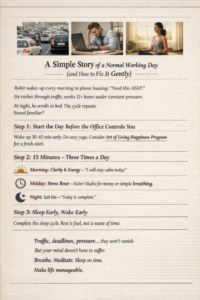Navigating Career Choices: The Role of Career Counseling
Common FAQ career counseling

Navigating the complexities of career choices can be daunting, whether you’re a student stepping into the professional world, a recent graduate exploring job opportunities, or a seasoned professional considering a career shift. This is where career counseling becomes invaluable. By offering expert guidance, personalized assessments, and strategic planning, career counseling helps individuals unlock their true potential and achieve career satisfaction.
Frequently Asked Questions (FAQ) on Career Counseling
Q1: What is Career Counseling?
Career counseling is a professional guidance service that helps individuals understand and make decisions about their career paths. It involves exploring interests, strengths, values, and skills to align with suitable career options.
Q2: Why is Career Counseling Important?
Career counseling is essential because it provides individuals with clarity and direction. It helps in:
- Identifying strengths and weaknesses
- Understanding suitable career options
- Setting realistic career goals
- Making informed decisions about education and training
- Reducing career-related stress and anxiety
- Enhancing job satisfaction and career growth
Q3: Who Can Benefit from Career Counseling?
Career counseling can benefit anyone at different stages of their career, including:
- High school and college students exploring career options
- Recent graduates entering the job market
- Professionals considering a career change
- Individuals looking to advance in their current career
- Those returning to work after a break
Q4: How Does Career Counseling Work?
Career counseling typically involves:
- Initial Assessment: Understanding the individual’s background, interests, and goals.
- Career Exploration: Exploring various career options and industries.
- Skill Assessment: Identifying strengths, weaknesses, and skill gaps.
- Goal Setting: Setting short-term and long-term career goals.
- Action Plan: Creating a step-by-step plan to achieve career objectives.
- Ongoing Support: Providing continuous guidance and support as needed.
Q5: What Tools and Techniques are Used in Career Counseling?
Career counselors use a variety of tools and techniques, including:
- Personality and aptitude tests
- Interest inventories
- Career assessments
- One-on-one counseling sessions
- Workshops and seminars
- Job search strategies and resume building
Q6: How Can I Find a Good Career Counselor?
To find a good career counselor, consider the following:
- Look for certified professionals with relevant experience
- Check for positive reviews and testimonials
- Seek recommendations from trusted sources
- Ensure they offer personalized and comprehensive services
- Evaluate their communication and understanding of your needs
Q7: What are the Common Challenges Addressed in Career Counseling?
Common challenges include:
- Career indecision and confusion
- Lack of confidence and self-awareness
- Job market trends and industry demands
- Work-life balance and stress management
- Career transitions and skill development
Q8: Can Career Counseling Help with Job Search Strategies?
Yes, career counseling can significantly improve job search strategies by:
- Enhancing resume and cover letter writing
- Providing interview preparation and techniques
- Offering networking tips and opportunities
- Advising on job search platforms and resources
- Building confidence and presentation skills
By addressing these questions and more, career counseling proves to be an invaluable resource for individuals at any stage of their professional journey. Whether you’re just starting out or looking to make a change, a career counselor can provide the guidance and support you need to achieve your career goals.






